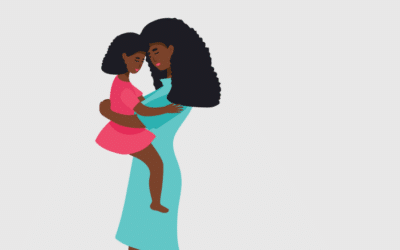Who doesn’t know that feeling of exhaustion? The feeling of being worn out and mentally numb. It’s a tired sensation that can’t be cured with sleep. Really, it’s an experience that’s become all too common place in today’s world.
Earlier this year, surveys showed that 54% of Americans were feeling a sense of emotional exhaustion at the hands of this virus. Now, that was back in April, during a time when we were still just ankle-deep into this pandemic. It was a time when news headlines surrounding deaths and economic fallout were still a novel thing. A time when those headlines still elicited strong emotions of fear and anxiety.
Today, headlines surrounding layoffs, Corona deaths, and social unrest are so common place that they’ve become a way of life. Really, they’ve become part of the “new normal” that flavors our world. No longer are we caught off guard when we hear of overcrowded hospitals, refrigerator trucks lining streets, or mass graves of victims.
In fact, facing the uncertainty surrounding our health, the safety of our loved ones, and our ability to get our basic needs met are just a part of our daily routine. So, really, it goes without saying that if you’re experiencing a sense of detachment from the emotions one would expect to be feeling, you’re certainly not alone. Truthfully, many of us have just reached our limits- we’ve maxed out our emotional thresholds.
Just a few months ago, statistics surrounding the decline in our nation’s mental health were grim at best. Truthfully, I would be lying if I said that in some way, I couldn’t identify with those numbers. Isolation from stay at home orders was rough. Once the acceptance of the new reality set in, like so many others, I felt the heavy weight of grief.
But, like many of you, at some point I reached my capacity. I didn’t have the energy left to feel anything with too much depth. It was like I just couldn’t muster up the momentum to get excited, disappointed, or even upset. Even as I write this, I struggle to find the words to place around that sense of exhaustion. It’s a feeling that so many of us are experiencing right now, and for most, it’s new territory.
More so, it seems like everywhere you go, people are just a little different these days. They’re a little quieter, a little less enthusiastic, a little more withdrawn. Silence in the presence of others is now common place. It’s as if the weight of words are just too much for people to bare. Perhaps, we’re just too tired for superficial conversation. Conversation that requires energy which can’t be drawn from a lifeforce that’s already been tapped out.
For decades there’s been research surrounding a term coined, learned helplessness, which can at least partially explain what so many of us are experiencing right now. It’s a phenomenon stumbled upon by psychologist, Martin Seligman, during his behavioral research with dogs in the 1960’s and 70’s.
During his studies, Seligman found that dogs who had previously been exposed to electric shock without the ability to escape it, would eventually no longer seek refuge, even when given the option to do so. Later, he would apply this same research to rats and get the exact same results. It was as if the animals just gave up, they believed they were helpless to control their fate.
So, what does this mean for us? Seligman’s research was later repeated on humans, but instead of painful shock, loud noise was used in its place. And, as you would expect, while most certainly more complex in our nature, we displayed the same response as the dogs and rats did.
The truth is, when we start to feel as if we’re powerless to avoid negative outcomes in our lives, learned helplessness starts to set in. And, the implications of that are vast. At the individual level, we begin to experience symptoms of burnout, emotional exhaustion, depression, and cynicism. On a larger scale, productivity starts to drop, organizational turnover increases, and innovation is shuttered.
Learn More: Learned Helplessness: Seligman’s Theory of Depression (+ Cure)
Right now, we’re bombarded with powerful messages from the media. Every day, we hear of COVID-19 cases soaring, and we’re uncertain of whether our jobs are safe or our businesses can survive another shutdown. Frankly, many of us have no idea how we will make ends meet tomorrow, let alone a month down the road.
But, what’s worse is that at this point, many of us feel powerless over our fate. You see, individually, we can’t halt the spread of this virus or stop it from claiming our livelihoods. And, whether we’ve consciously thought through that or not, it mentally takes a toll.
However, the truth is, while we can’t do much individually, together, there’s quite a bit that can be done. Each of us needs to do our part by pressing on in the face of adversity. Really, we need to power through when things get tough and be productive for the collective good.
That being said, each of us will also need to do what we can to halt the spread of this virus. By doing so, we can stop the fallout that comes alongside it. It’s time to stop thinking of ourselves and to start thinking of the greater good. We need to wear our masks when we go out, wash our hands regularly, disinfect our areas, and most importantly, stay at home when we’re feeling sick to protect those around us.
We know it’s not always easy to see, but believe us when we say you’re not powerless. Each of us has the ability to end this pandemic, not alone, but as a small part of the collective whole. We’ll get through this together, as a community, one day at a time.
Want More?
If you enjoyed this article, check out the rest of our blog today and make sure to follow us at Youth Dynamics of Montana and People of Youth Dynamics on Facebook.






